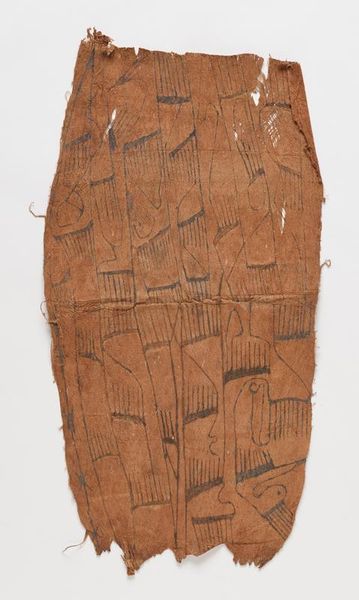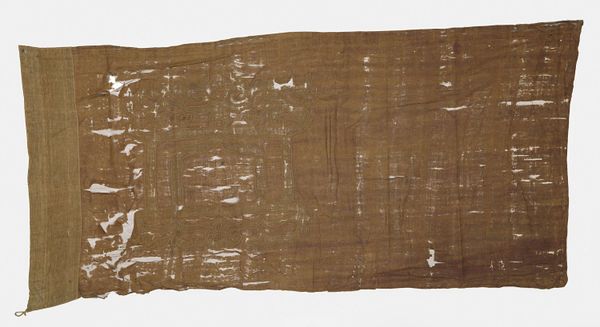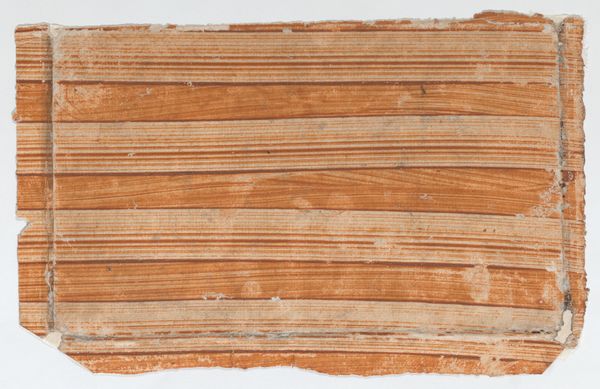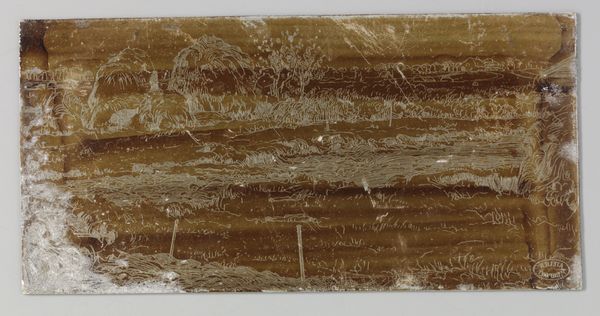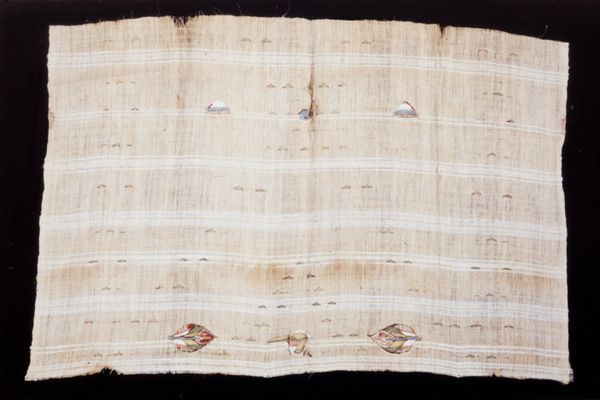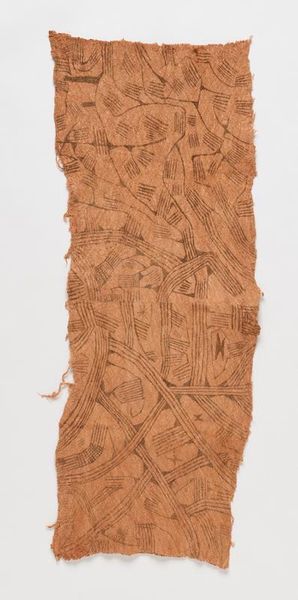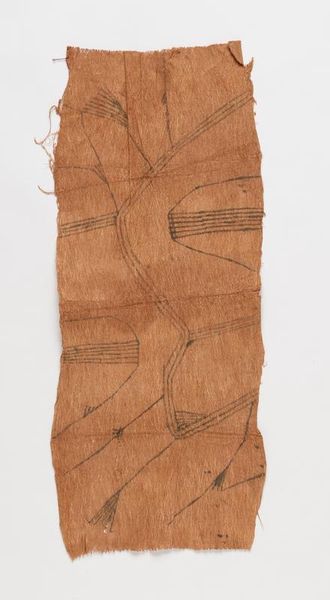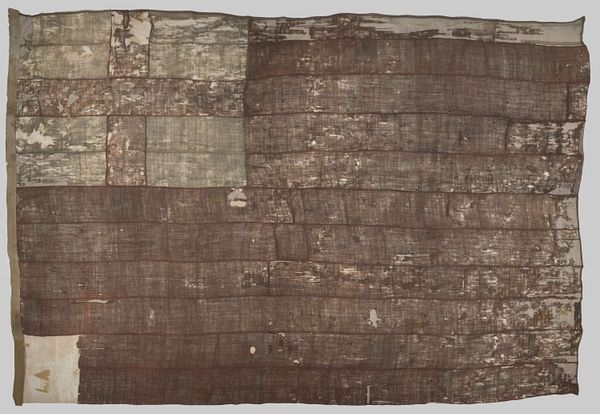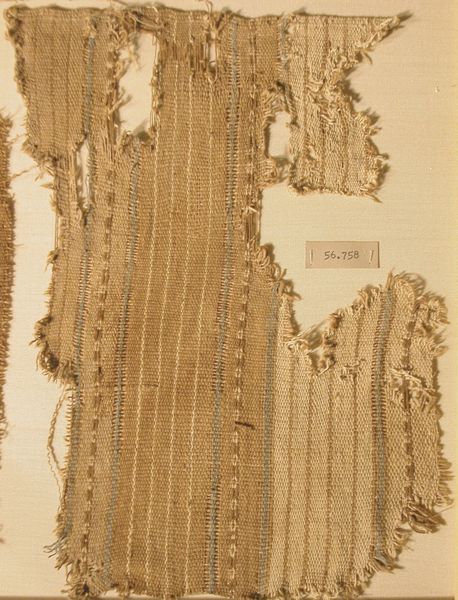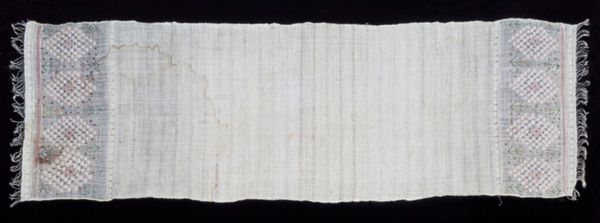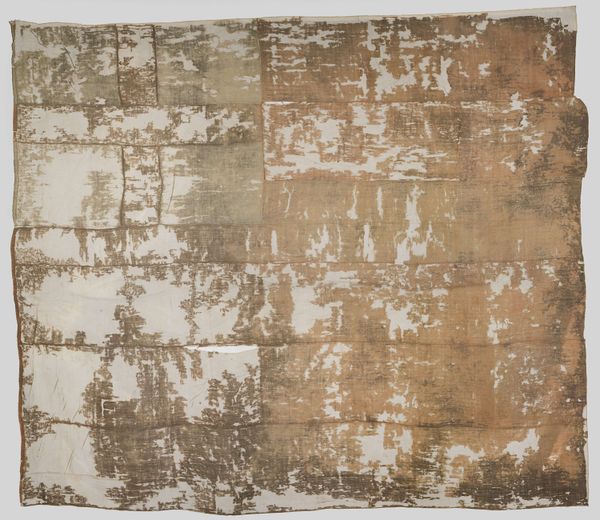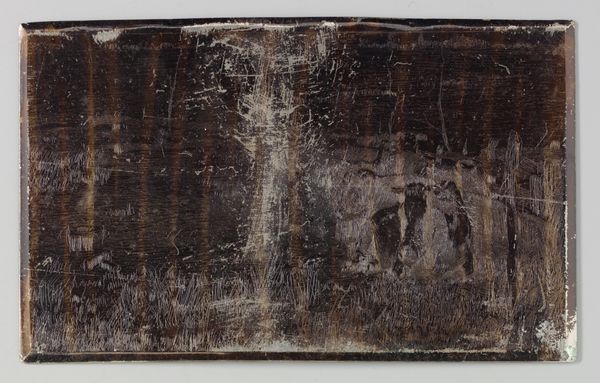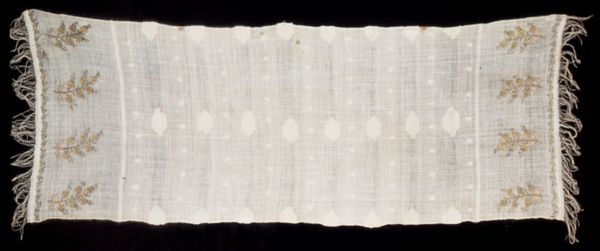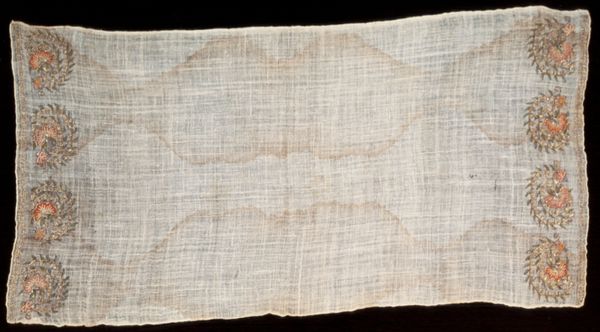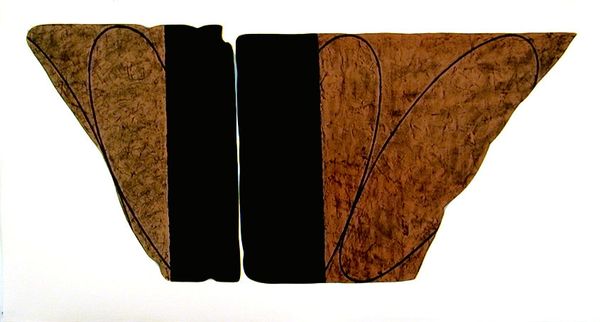
fibre-art, weaving, textile
#
fibre-art
#
weaving
#
textile
#
indigenous-americas
Dimensions: a: 41.9 × 25.4 cm (16 1/2 × 10 in.) b: 25.4 × 27.9 cm (10 × 11 in.) c: 35.6 × 23.5 cm (14 × 9 1/4 in.) d: 29.2 × 35.6 cm (11 1/2 × 14 in.)
Copyright: Public Domain
These woven fragments, crafted by the Chancay people, present a compelling visual language through their recurring vertical stripes. The simple yet powerful design is not merely decorative; within the cultural context of ancient Peru, such patterns held deep symbolic significance, likely communicating social status or spiritual beliefs. Consider how similar striped motifs echo across cultures and centuries, from the robes of ancient priests to the textiles of medieval Europe. This universal appeal might stem from a primal human fascination with order and rhythm, mirroring natural phenomena like the rising and setting of the sun, the ebb and flow of tides. The very act of weaving, with its repetitive interlacing of threads, evokes the cyclical nature of existence. As the fabric degrades, it gains an emotional weight. The stripes persist, as a symbol of the collective human experience, suggesting a primal connection to our ancestors.
Comments
No comments
Be the first to comment and join the conversation on the ultimate creative platform.
